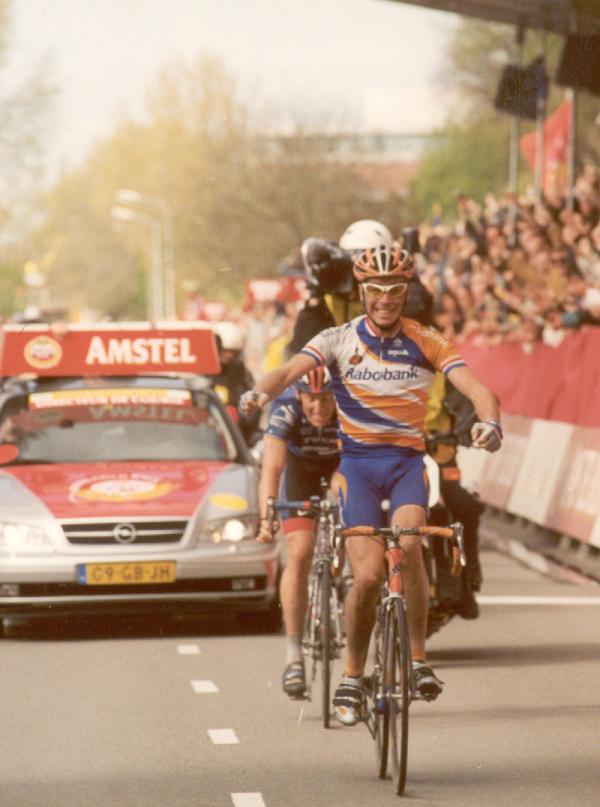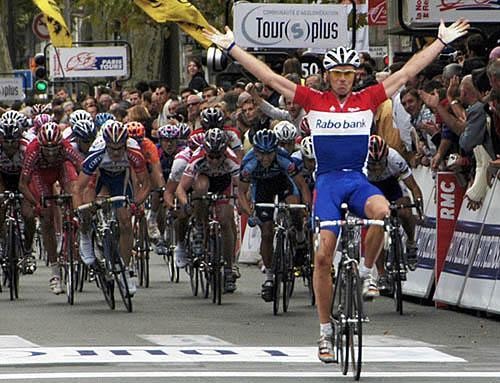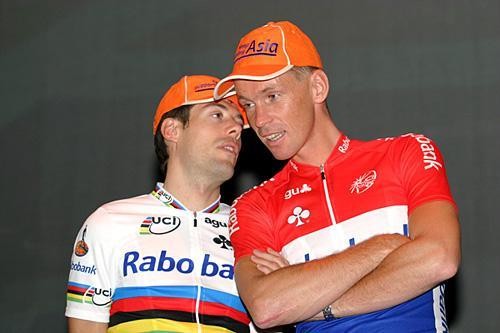Erik Dekker nostalgic for World Cup
2001 winner misses the leader's jersey in the peloton



Now a directeur sportif for the Rabobank team, Erik Dekker is one of the last winners of the road World Cup, in 2001. "I hadn't realised it was 10 years ago," he told Cyclingnews. "But I'm still very proud about that victory. It's the result of ten races."
From March to October, the 2001 World Cup included the "Five Monuments" of cycling: Milan-San Remo, the Tour of Flanders, Paris-Roubaix, Liège-Bastogne-Liège and the Tour of Lombardy. The five other Classics, all based in Europe, were the Amstel Gold Race, the Clasica San Sebastian, the HEW Cyclassics in Hamburg, Paris-Tours and the GP of Zurich.
Erik Dekker said that the World Cup was not his goal at the beginning of the 2001 season.
"But it became it once I took the lead after the Amstel Gold Race [the Dutch Classic, where he won, Ed.]. I fully focused on the overall in the second part of my season and I raced the Tour de France only to prepare it."
On the final podium, Dekker finished ahead of Erik Zabel and Roman Vainsteins. After him, Paolo Bettini won the last three editions of the World Cup. The Italian closed the palmarès of a trophy launched by the UCI in 1989. The best Classics hunters of the era succeeded in winning the competition overall, notably Sean Kelly, Michele Bartoli, Johan Museeuw and Andrei Tchmil.
Dekker says the withdrawal of the World Cup was "a shame." He remembers the special kit worn by the leader, with rainbow stripes, in a vertical position not to be confused with the horizontal stripes of the world champion. "It was a wonderful jersey and cycling is a sport of jerseys," Dekker noted.
In 2005, UCI created the ProTour ranking, which last year became known as the WorldTour.
The latest race content, interviews, features, reviews and expert buying guides, direct to your inbox!
"The new world classification has nothing to do with the former World Cup," Dekker said. "It was a wonderful challenge for one-day race riders".
The Dutch cyclist also remains famous as a four-times stage winner in the Tour de France. In 2000 he won three times, in characteristic style, sometimes launching an attack in the very last kilometre.
Asked by Cyclingnews why riders very rarely win that way now, Dekker felt that "it's almost impossible to do it again".
He explained that riders firstly need "good circumstances to win". He noted that "there were not three opportunities for them" in this year's Tour de France.
"Cycling has developed and is now better organised, the speed is higher", Dekker analysed. "Teams take riders to lead the peloton the whole day for Cavendish and other sprinters, and the riders have just that thing to do."
However, Dekker concluded that current riders shouldn't be frightened by the sprinters' teams: "If you never try, you never win..."